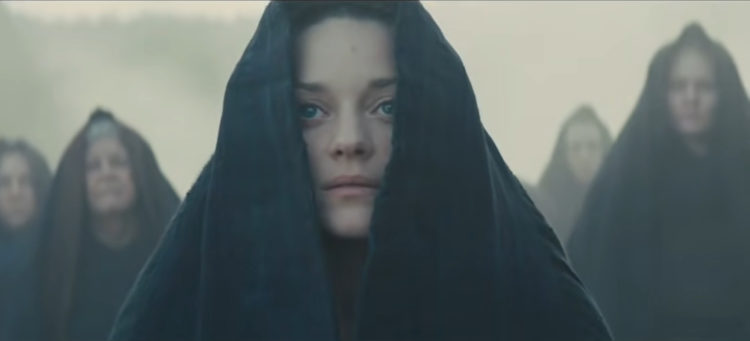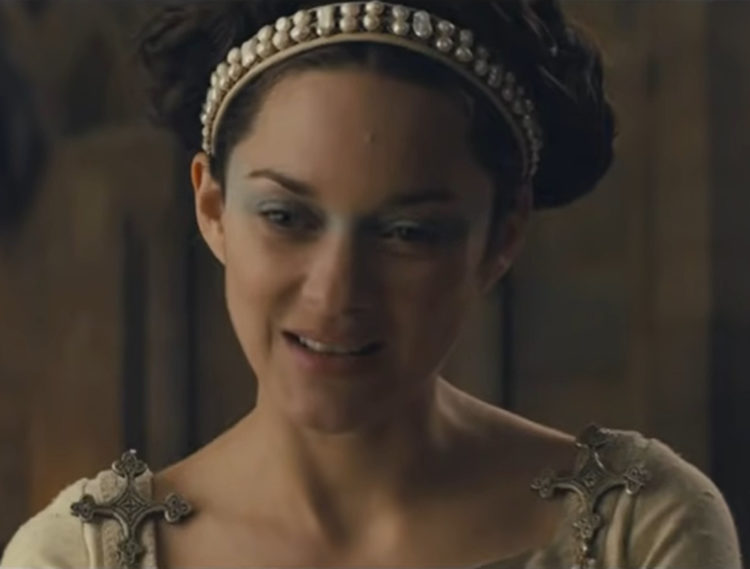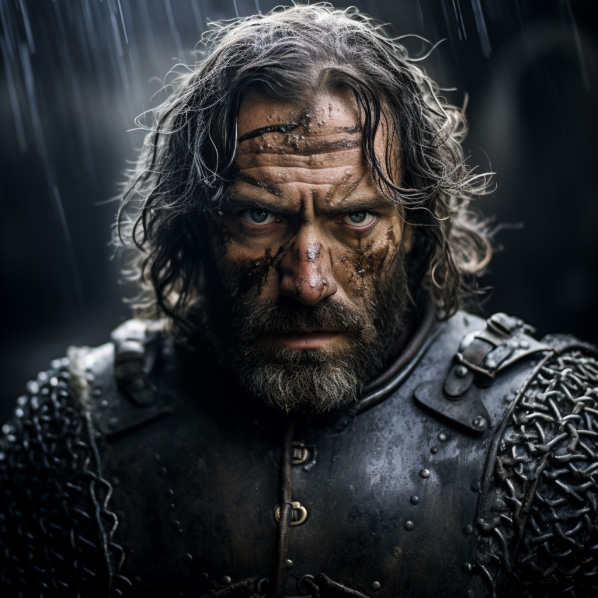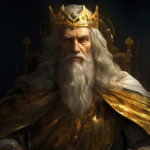“Macbeth,” penned by William Shakespeare, is a tragedy that explores the dire consequences of unchecked ambition. The play stands as a timeless reflection on power, guilt, and ambition. Here I have a summary of Macbeth – the short one and comprehensive complete overview. Also we’ll dive deeper into this tragedy.
Short Summary of Shakespeare’s Macbeth
After three witches prophesy that Macbeth will become the King of Scotland, he becomes consumed by ambition. Encouraged by his manipulative wife, Lady Macbeth, he murders King Duncan and takes the throne. However, guilt and paranoia plague Macbeth, leading him to commit more murders to secure his position. As his reign descends into tyranny, opposition grows, culminating in his death at the hands of Macduff.
The play serves as a cautionary tale about the corrupting influence of unchecked ambition and the moral consequences of treacherous actions.
Comprehensive Summary of Macbeth, Act-by-Act
Act I: Prophecies and Ambitions
The play begins with the eerie appearance of three witches who discuss when they’ll meet again. After a battle, Scottish generals Macbeth and Banquo come across these witches. The witches predict Macbeth will be named Thane of Cawdor and eventually the King of Scotland. They also tell Banquo that, while he won’t be king, his descendants will be. Shortly after, Macbeth is indeed named Thane of Cawdor, which makes him believe the rest of the prophecy. When he writes to his wife about the events, Lady Macbeth becomes consumed with ambition. She persuades a hesitant Macbeth to kill King Duncan and take the throne.
Act II: Regicide and Guilt
Macbeth is tormented by guilt and indecision, but with Lady Macbeth’s insistence, he murders King Duncan in his sleep. They plant the daggers on the sleeping guards to frame them. The next morning, when Duncan’s death is discovered, his sons, Malcolm and Donalbain, flee Scotland, fearing for their own lives. This allows Macbeth to be crowned king. However, the murder and its aftermath have planted seeds of paranoia and guilt in Macbeth and Lady Macbeth.
Act III: Power and Paranoia
Macbeth, now king, feels threatened by the prophecy about Banquo’s descendants becoming kings. He hires murderers to kill Banquo and his son, Fleance. They succeed in killing Banquo, but Fleance escapes. At a royal banquet, Macbeth is haunted by Banquo’s ghost, which only he can see. This public display of his guilt further alienates him from his lords.
Act IV: Descent into Madness
Seeking to secure his position, Macbeth visits the witches again. They offer cryptic prophecies, warning him to beware of Macduff but also suggesting he’s invulnerable until Birnam Wood comes to Dunsinane and that no man born of a woman can harm him. Taking this literally, Macbeth feels invincible. However, out of paranoia, he orders the murder of Macduff’s family. Macduff, meanwhile, has gone to England to join forces with Duncan’s son, Malcolm.
Act V: Downfall and Death
Lady Macbeth’s guilt over the murders manifests in sleepwalking episodes where she tries to wash imaginary bloodstains from her hands. She eventually dies, with implications of suicide. Macduff and Malcolm lead an army against Macbeth, using branches from Birnam Wood as camouflage, fulfilling one of the witches’ prophecies. In the final confrontation, Macduff reveals he was born by Caesarean section, and thus not “born of a woman” in the conventional sense. He kills Macbeth. Malcolm is then declared the King of Scotland, restoring order to the kingdom.
General Info About The Play
- Title of the work: Macbeth
- Author: William Shakespeare
- Date of Publication: First recorded performance in 1606, first published in the First Folio in 1623.
- Original Language: English
- Genre: Tragedy
- How long is it? The play has five acts, with a total of about 2,000 lines.
- Form and Structure: Play with five acts, further divided into scenes.
- Setting: Scotland and, briefly, England during the Middle Ages.
- Themes: Ambition, power, fate vs. free will, guilt, the corrupting nature of unchecked ambition, the supernatural.
- Publication Medium: Originally performed at the Globe Theatre and other venues; first printed publication was in the First Folio of Shakespeare’s works.
- Diction: Shakespearean English, which includes a mix of formal and colloquial language, poetic devices, and a variety of rhetorical techniques. The language is Early Modern English, with specific connotations and metaphors relevant to the time and themes of the play.
Main Characters Overview
Macbeth
- Personality: Ambitious, initially honorable, easily manipulated, and increasingly paranoid.
- Age: Middle-aged (exact age is not specified in the play).
- Gender: Male.
- Role: Macbeth starts as a loyal subject and valiant soldier but becomes consumed by ambition after hearing the witches’ prophecies. His transformation from a revered general to a tyrannical ruler showcases the corrupting power of unchecked ambition.
Lady Macbeth
- Personality: Strong-willed, manipulative, ambitious, and later, consumed by guilt.
- Age: Likely in her mid to late 30s, though her exact age isn’t specified.
- Gender: Female.
- Role: Lady Macbeth is the driving force behind her husband’s actions, pushing him to commit regicide. Her descent into guilt-induced madness contrasts with her earlier assertiveness and desire for power.
Banquo
- Personality: Honorable, cautious, and loyal.
- Age: Likely around Macbeth’s age, middle-aged.
- Gender: Male.
- Role: Banquo serves as a foil to Macbeth. While he also hears prophecies from the witches, he chooses not to act on them, highlighting the tragic path Macbeth chooses.
King Duncan
- Personality: Benevolent, trusting, and kind-hearted.
- Age: Elderly, as he has adult children and has ruled Scotland for a while.
- Gender: Male.
- Role: Duncan’s murder is the catalyst for the play’s events. His trusting nature contrasts with Macbeth’s treachery.
Macduff
- Personality: Righteous, loyal to Scotland, and driven.
- Age: Middle-aged.
- Gender: Male.
- Role: Macduff stands as the moral backbone of the play, opposing Macbeth’s tyranny and seeking justice for Scotland.
Malcolm
- Personality: Wise, cautious, and just.
- Age: Young adult, as he is Duncan’s eldest son but not yet a seasoned leader.
- Gender: Male.
- Role: Malcolm represents legitimate leadership and the hope for a restored Scotland. His journey from a fleeing prince to a rallying leader showcases his growth and determination.
Context
“Macbeth” was written in the early 17th century, during the reign of James I of England (James VI of Scotland). The play is believed to have been influenced by James’s interest in witchcraft – he even wrote a book on the subject, “Daemonologie.” Moreover, James claimed descent from Banquo, making the play’s themes of lineage and legitimacy particularly relevant. The political intrigue and the focus on the dangers of unchecked ambition might also reflect the broader political climate of Shakespeare’s time.
Comparison with Other Works of Shakespeare
Shakespeare often explored the themes of power, ambition, and supernatural elements in his other plays. For instance, “Hamlet” and “Macbeth” both delve into the psychological torment of their protagonists. However, while Hamlet is paralyzed by indecision, Macbeth is spurred into a series of rash actions by his ambition. “Richard III” also presents a character whose ambition leads him to moral downfall, but Macbeth’s descent is more rapid and driven by external influences like the witches and Lady Macbeth.
Reception and Criticism
“Macbeth” has been one of Shakespeare’s most popular plays since its inception. Its initial reception was positive, especially given its appeal to King James. Over time, interpretations of the play have evolved. Earlier readings might have focused on the moral lessons of unchecked ambition, while modern interpretations often delve into the psychological complexities of Macbeth and Lady Macbeth. The character of Lady Macbeth, in particular, has been the subject of extensive critical analysis, from being seen as a personification of ambition to a more nuanced understanding of her as a complex, multi-dimensional character.
Comparative Analysis With Other Works of The Time
During Shakespeare’s time, there was a surge in plays that dealt with the supernatural and political intrigue, reflecting societal interests and fears. Plays like “Doctor Faustus” by Christopher Marlowe also delved into the consequences of unchecked ambition and dealings with the supernatural. However, “Macbeth” stands out for its intense psychological depth and the intricate interplay between fate and free will. Compared to other works of the same period, “Macbeth” is darker, more concise, and more focused on the internal turmoil of its main characters.
Adaptations
- Film: “Macbeth” (1971) directed by Roman Polanski. This version is known for its dark and gritty portrayal of the play.
- Film: “Macbeth” (2015) starring Michael Fassbender and Marion Cotillard. A visually stunning adaptation with a fresh take on the classic tale.
- Theatre: “Macbeth” by Giuseppe Verdi. An opera version that brings the tragic tale to life with powerful music.
- Literature: “Macbeth” retold by Jo Nesbø. A modern-day crime novel adaptation set in a decaying town, echoing the original’s themes of power and corruption.
- Visual Art: The works of artists like Johann Heinrich Füssli, who created haunting paintings inspired by key scenes in “Macbeth”.
- Video Games: While not a direct adaptation, games like “Assassin’s Creed” have drawn inspiration from themes present in “Macbeth”, especially the interplay of power, ambition, and moral consequence.
Interesting Facts Related to Macbeth
“The Scottish Play”: Actors traditionally avoid saying the name “Macbeth” in a theater, believing it brings bad luck. Instead, they refer to it as “The Scottish Play.”
King James I: Shakespeare wrote “Macbeth” with King James I in mind, who was fascinated by witchcraft and even wrote a book on the subject. The inclusion of witches in the play was likely a nod to the king’s interests.
Shortest Tragedy: “Macbeth” is Shakespeare’s shortest tragedy, and it’s believed that the text we have today is an edited version, shortened for performances.
Real Macbeth: The character Macbeth is based on a real Scottish king, Mac Bethad mac Findlaích, who ruled from 1040 to 1057. However, the real king’s story is quite different from Shakespeare’s portrayal.
Lady Macbeth’s Name: In the play, Lady Macbeth’s first name is never mentioned. In historical records, she was Gruoch of Scotland.
My Short Review of The Play
“Macbeth” is a haunting exploration of ambition, morality, and the supernatural. Shakespeare masterfully delves into the human psyche, presenting a tragic hero consumed by ambition and the consequences of unchecked power. The play’s dark atmosphere, combined with its profound themes, makes it a timeless piece that resonates even today. The characters, especially Lady Macbeth, are intricately crafted, showcasing the complexities of human desires and actions.
🎭✍️ Join the Discussion! What did you think of “Macbeth”? Were you captivated by its dark allure or did you interpret a different message? Share your thoughts in the comments below! ✨👇










Comments